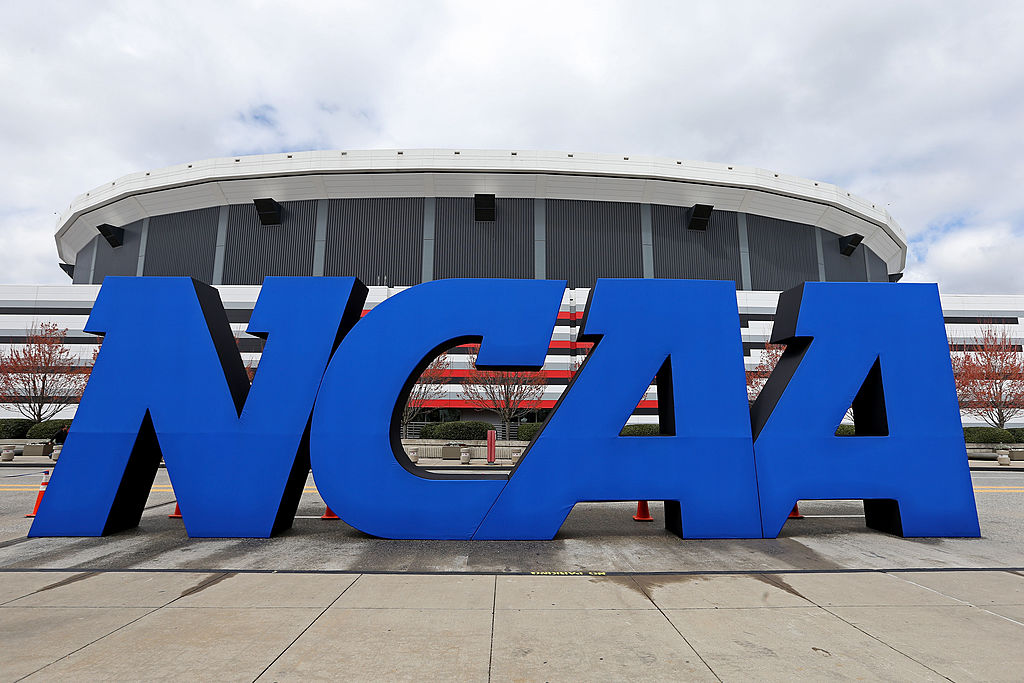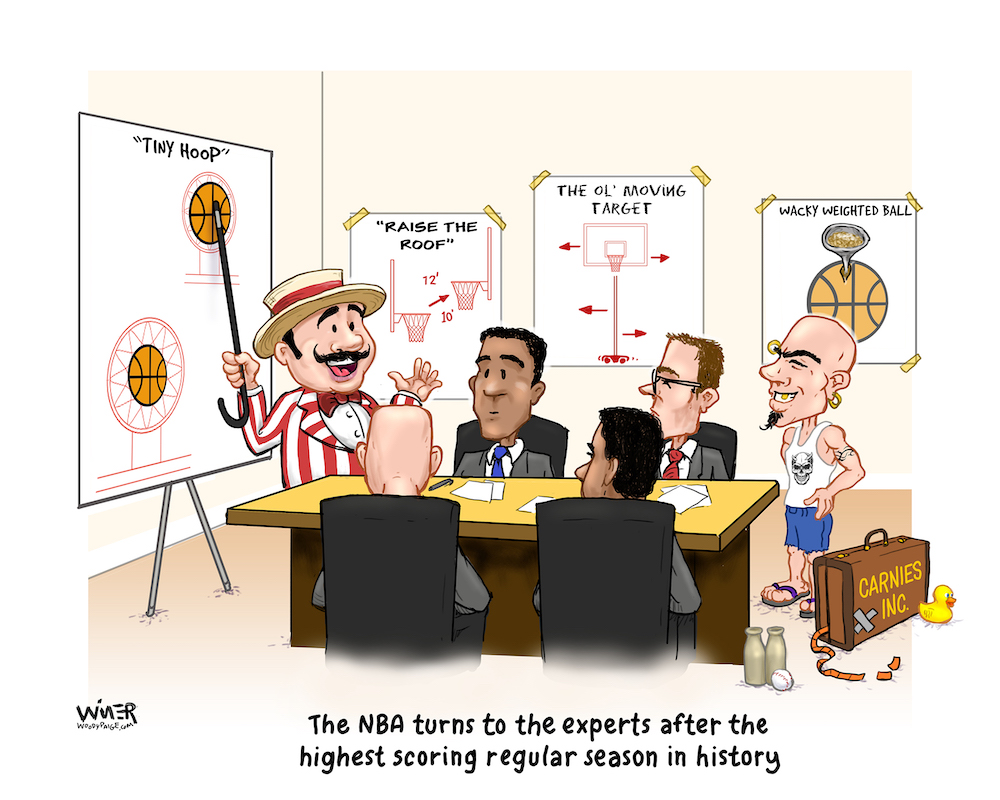Jerry Schemmel is realistic.
He won’t say it, but I will: If Vin Scully, Ernie Harwell and even Jon Miller came across the Fountain of Youth, flashed back to age 32 and were up for a major-league radio play-by-play job, the decision makers would listen to a demo and say their thoughtfulness, storytelling, dry humor, sense of history and poetic calls were too drab.
Next …
This is about a single erudite broadcaster, a fixture in the Colorado market as the radio voice of the Nuggets from 1992-2010, and the Rockies from 2010 until … well, until Jan. 16.
Yet this also is about the businesses of sports and broadcasting, and similar scenarios are playing out around the country.
Schemmel is scrambling after getting the word that he was one of many losing their jobs in massive cuts made by iHeartMedia, the largest radio conglomerate in the country. It owns Denver’s KOA, the flagship of the Rockies’ regional radio network. Schemmel was one of about 12 cuts along the company’s Front Range stations.
What now?
“I’m open, but the timing’s terrible,” Schemmel told me when we talked Thursday. “Obviously, all the major league teams have their announcers and it’s the middle of the NBA season. I’d look to get back in the NBA if I had that opportunity, or another gig in Major League Baseball.
“To be honest, it’s an uphill battle. I don’t know that there’s a huge market for a 60-year-old broadcaster. Everybody’s looking for the next young hotshot superstar, and I’m not that. I feel like I have a lot of gas left in the tank.” He laughed and added, “I’m healthy and even though I’m 60, I only look 59 and a half.”
Schemmel has a law degree from Washburn University also did some broadcasting work with the Minnesota Timberwolves and with Colorado State University, and briefly was commissioner of the Continental Basketball Association. He even spent a stint as the baseball coach at Metropolitan State University of Denver.
He was one of 184 survivors of the horrific United Flight 232 crash at Sioux City, Iowa, that killed 112 in 1989. His 1996 book, Chosen to Live, with collaborator Kevin Simpson, tells his story.
In the wake of the position cut, he and his wife, Diane, will continue dealing with her breast cancer fight – she was diagnosed six months ago and underwent surgery — and a lung illness. They’ll do it on the COBRA form of group health insurance, a carryover of an employer-supported health plan … but solely paid for by the insured. To say it isn’t cheap is an understatement.
He did receive some severance pay, though he declined to name the figure.
This all came after Schemmel’s phone rang as he was packing for his trip to Arizona for spring training.
The caller was Greg Foster, an iHeartMedia vice president and KOA’s program director. Because the iHeartMedia station, not the Rockies, pays the radio crew, Foster was Schemmel’s boss.
Schemmel said the conversation went this way.
“He said, ‘Hey, Jerry, have you heard about all the cuts that iHeart’s making across the country?’
“I said, ‘No.’
“He said, ‘Well, you’re one of them.’”
Schemmel continued, “So it was completely out of the blue. I had no idea. And I don’t think he did, either. I think he’d been given a directive to cut salary at their station and they had to do it on one day and it went down pretty quickly.”
IHeartMedia Denver this week announced it was moving KOA’s sports director, Mike Rice, into the baseball booth to join veteran Jack Corrigan. It still represents a position cut – one of the many at iHeartMedia. Schemmel said when an agent did a survey of MLB radio announcers’ salaries about two years ago, his salary ranked about in the middle.
“I don’t have any hard feelings against KOA,” Schemmel said. “I would have done it differently, but the result would have been the same. I was one of 855 people that got cut in one day and I’m no different than the other 854.”
How would he have done it differently?
“The way that it went down, a (brief) phone call seemed a little cold to me after working there for 10 years,” he said. “But I know now it was a scramble to get it done in one day and the people that made those decisions had a really difficult job to do. It wasn’t easy for anybody. You think you might be treated a little but better but I do understand the circumstance.”
Schemmel will be missed.
If there was a glitch to the Rockies broadcasts, it was that both Schemmel and Corrigan alternated as the play-by-play voice during games, with other theoretically switching to the analyst role. But this won’t lead to the addition of a pure analyst, either. It also ignores the reality that many of the best radio voices in the game could pull off solo acts. But the Rockies will be sticking with the two-man alternating approach.
Of course, the rhythms of baseball, with all its pauses – and especially in the era when hitters must step out, un-strap and re-strap their batting gloves between pitches, regardless of what the rules say – create extraordinary demands on the radio voices. It’s different than the end-to-end action in hockey and basketball, and even football to a lesser extent.
Part of the challenge is to avoid feeling that everything requires a detailed explanation to prevent — gasp — stretches of silence from the booth. That said, one size does not fit all. The past showmen are beloved and legendary – i.e., “Mota spelled backwards is atom” — as are the storytellers and historians. Yet others are building loyal constituencies in this era.
A consummate pro, Schemmel never has been glitzy – in either the NBA or MLB. He has been thoughtful and while you could tell which team’s broadcasts he was working, he wasn’t a disgusting homer, either.
Schemmel is convinced it was purely an economic decision. Regardless, this is clear: When the cuts had to be made, Schemmel’s track record – one that has built admiration and respect among the listening base more than goofy adulation – didn’t save his job. With that, the public reaction was virtually universal incredulousness and support.
“Honestly, I didn’t see all that coming,” he said of the reaction. “It was humbling and it was flattering and it was healing, too. It really was. After I got the news, there were some gaping wounds. With all that reaction and support, I kind of healed up.”
Then the news over the weekend triggered memories of United Flight 232.
“My daughter texted me and said, ‘Hey did you hear that Kobe [Bryant] died in a helicopter crash?’” he said. “I was, ‘What? No, something’s wrong here. It’s wrong information.’ It just stunned me.
“After getting online and seeing stuff, I saw that it happened. I thought about all the shattered lives now that are going to move forward. That’s what happened in our plane crash. You still have to move forward. I still have contact with so many family members of people who died in the crash I was in, and they’re still struggling 30 years later. I just know as tragic as it was that Kobe and his daughter died, and seven others, but now I know that moving forward, how many shattered lives they’re going to be and those people might not even recover completely from it.”
Has he?
“The answer is no not completely, and I never will,” he said. “There are scars that never will completely heal, and I think that’s the same for everybody who survived our crash or anything like it. But I think I have to move on the best I can and not have it define me and go on in the real life dreams I had, the NBA and eventually baseball.”
I asked Schemmel if he had any interaction as the Nuggets’ play-by-play voice with Bryant.
“When he was a rookie I actually was able to interview him for the pre-game show,” he said. “And he was great. He was very cordial, very intelligent and articulate man, and a great interview. I thought, ‘Oh that’s really cool, I’m building a relationship here.’ And he had this great rookie year. So the next year, I said, ‘Hey, can I get Kobe?’ (The answer was) ‘No. Kobe doesn’t talk to people like you any more. You’re lucky you got him when you did because Kobe doesn’t do that.’”
Make no mistake, he said that with affection.
Schemmel still plans to again participate in the Race Across America bicycle race as a solo entrant in June, as he did annually with a clause in his contract giving him time off for the event. He plans to work out for that … and wait.
About Terry: Terry Frei is the author of seven books. His novels are Olympic Affair and The Witch’s Season, and among his five non-fiction works are Horns, Hogs, and Nixon Coming; Third Down and a War to Go; and ’77: Denver, the Broncos, and a Coming of Age. Information is available on his web site, terryfrei.com. His woodypaige.com archive can be found here.
More from The Woody Paige Sports Network:
- CARTOON: Can Andy Reid shake the monkey off his back in Super Bowl 54?
- Here’s Who Vegas Is Picking To Win Super Bowl 54 MVP
- LIV ways (or so) to make it through a Super Bowl 54 party
- Woody Paige: Mahomes, Chiefs will thrive in Super Bowl LIV
- 49ers coach Kyle Shanahan had a lofty career goal from a very young age
- Where will Tom Brady play in 2020? Only 4 teams seem realistic


















KOA’s ratings are 18th in the market. 18th! KOA! Maybe the program director should have gotten wacked instead of Jerry. Radio executives are idiots…especially Iheart’s “braintrust.”